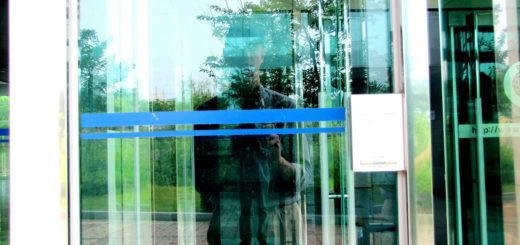Progressive Moral Infantilism: The Virtue of Cowardice
I frequently refer to the moral infantilism of the progressive mind. This infantilism is not merely a by-product of progressive thinking, but is in fact an intended and essential outcome of progressive social engineering. Today’s “safe spaces” on college campuses, complete with teddy bears and dolls, are merely an especially silly manifestation of a general, and deadly serious, civilizational regression.
Back in 2012, I took a stab at confronting this disaster head-on, writing an article for American Thinker entitled “Infantalizing Leftist Morality.” That, in fact, was the title assigned by American Thinker’s editors. My own title was “The Virtue of Cowardice.”
Looking at it now, I can see a few points in my argument that I might like to expand or reframe. Still, as an overview of the moral dynamic of progressive social control, I think I got the basics about right, so I will reproduce it here in Limbo with only a few cosmetic changes.
The Virtue of Cowardice
(Originally published at American Thinker, July 19, 2012)
Among the various ways that modern leftism benefits from its systematic promotion of infantilism is that perpetual children lack the basic courage that is essential to the maintenance of liberty. A courageous adult will not trade his freedom, let alone that of others, for a “social safety net.” Thus, leftists are deeply invested in cowardice, although naturally, as clever propagandists, they use alternative names in their promotional materials.
Everyone can recall the following experience from his own early childhood: You are wandering through the market with your mother, feeling quite carefree in dawdling among any items that strike your fancy, until suddenly you look around and realize that your mother is nowhere to be seen. Instantly, the reckless abandon of the self-indulgent daydreamer is transformed into a near-paralyzing fear: “I can’t face this strange world alone!”
Being gripped by the fear of abandonment in this way is irrational, in the sense that it is reasonable to assume that your mother is not far away, and has not really forgotten you. It is understandable, however, in the sense that as a child, it is actually true that you could not make your way in this unfamiliar terrain alone. Gradually, with experience, you realize that your mother’s occasional “disappearance” is no cause for alarm, and that a brief search will undoubtedly restore your feeling of normalcy. A few years along, you will even begin to crave the opportunity to strike out on your own, although always with the comforting knowledge that you are an easy bus ride away from those familiar apron strings.
For millennia, the next step in the process of emotional development has been regarded as the essence of growing up, i.e., of becoming a mature adult. This is the stage at which one finally feels ready to step out into the world without the emotional safety net provided by that figurative bus ticket in one’s pocket. Finally, one is prepared to face the unknown future, with its risks and dangers, without shrinking back to the security of mother’s protective arms.
This moment entails many developments of character and intellect, but none more plainly than the first awakening of the cardinal virtue of courage. Courage, as it relates to one’s everyday life, is the capacity to face life’s inherent risks and challenges without succumbing to the fear of uncertainty.
For courage, as Aristotle teaches (Nicomachean Ethics III.6-7), is not merely the absence of fear; fear is a natural passion, and cannot simply be eliminated from the human soul. We all experience fear. Courage, on Aristotle’s brilliantly clarifying account, is the ability to stand upright in the face of life’s fearful risks, including and especially its greatest risk, death in battle. In fact, Aristotle contends that experiencing real fear of such things as poverty and disease is beneath the spirit of a dignified man, and that being brave in the face of such ultimately trifling concerns can only be called courage by analogy with the strict meaning of the term. In other words, fearless behavior regarding mere personal comfort and security does not even rise to the level of true courage, but is merely the baseline condition of one who is decently mature and rational.
One who falls short of even this baseline confidence in the face of life’s vicissitudes displays the cowardice of a man who simply never grew up. It is to respond to adult challenges in the manner of the four-year-old who loses sight of his mother in the market: “I can’t face this strange world alone!”
A free society, as the great political thinkers and statesmen have always contended, depends on the virtue of its citizens. Nowhere is this more urgently true and evident than in the once-freest of societies, the United States. Life in a free republic demands this minimum basic confidence — the individual’s self-reliance — as a prerequisite for maintaining social order and civility. The so-called “rugged individualism” which has fallen into disrepute and parody thanks to generations of collectivist education is nothing more than the simple willingness to face life’s obstacles, trials, and genuine hardships like a grown-up, relying on one’s own resources, and on what can be earned through one’s own effort and voluntary interaction. A free society cannot survive the death of such self-reliance.
As this basic, quotidian form of courage wanes, the petulant, self-congratulatory nouveau cowards who have been raised to take over society’s reins fall into doing what the excessively fearful always do: They overcompensate in the direction of security. They refuse to face even adult humanity’s most unavoidable challenges — supporting yourself, planning for potential misfortunes, taking care of your own — without a “safety net” purchased at the price of their freedom. They sell their liberty — and their neighbors’ — for a child’s idea of security, namely security provided by someone else, by a mother surrogate, by “society,” i.e., by government.
This coward’s quest for a safety net that can only be achieved through coercion is the antithesis of good citizenship. It means, in principle, that everyone is seeking to sacrifice everyone else to himself. The mutual respect of the citizens of a free society evaporates into mutual envy and resentment; in short, into an entitlement society.
The gradual expansion of “social assistance” in modern democracies, from its modest beginnings to today’s socialist behemoths, betokens more than merely a quantitative change in government expenditures. There has been a fundamental shift in the meaning of such assistance. What used to be called “public charity” is now “entitlement programs.” The difference is much more than semantics. The word “charity” carries with it the implication that the intended beneficiary is someone else. Those who paid taxes to support such programs, approvingly or not, did so in the clear understanding that they were paying to help other people; they neither expected nor desired any personal benefit from the programs. (As for the debate over the constitutionality of such programs in America, see Walter Williams, here.)
Gradually, however, the left inculcated the notion that we are all at risk, due to the nature of “capitalism” (i.e., freedom), and hence that government programs for those in need ought to be seen as a universal necessity. In other words, such programs were no longer to be viewed as something the vast majority of citizens provide for the benefit of the very few, but rather as something government ought to be providing for each of us as a primary function.
As a corollary to this shift in perspective, whereas the beneficiaries of public charity used to feel a certain kind of shame, such feelings are now regarded as inappropriate, on the grounds that it is unjust to have to regard oneself as in any way disgraced or demeaned for requiring public assistance. But contrary to leftist pop-psychology, that old-fashioned sense of shame, far from indicating an unhealthily diminished “self-esteem,” was actually a sign of good character. People who wish to be self-reliant are loath to confess a need for help. Their shame at receiving it grows from their healthy self-reproach at being temporarily unable to live up to the standards of adult citizenship. We respect them all the more, and regard them as all the more worthy of our help, for feeling a little ashamed in this way. Their shame, and the pride it reveals, proves to us that their need is real, and that, with a little help, they will likely elevate themselves again soon.
Taking the shame — and along with it the concomitant pride and desire for self-reliance — out of the arena of “public charity” has been a primary means of leftist societal corruption. Taking advantage of people’s worst inclination to an irrational fear of life’s vicissitudes, the left has gradually persuaded a great proportion of mankind that life without a permanent, ever-present public safety net is inhumane, primitive, and almost inconceivable. That basic, quotidian form of courage, which had defined mature adulthood for an entire civilization, has slowly unraveled before the fear of a life without socially-guaranteed security.
Progressivism, in the Marxist and post-Marxist forms that have been swallowing the world for a century, is, in its methodology, nothing but the moral infantilization of mankind. It seeks the establishment of a population dominated (i.e., controlled) by the childish fear of facing the world alone. Its pretty slogans are all variations on this theme. From “Workers of the world unite” to “It takes a village,” the message is always the same: you can’t face this “dog-eat-dog” world without the safety of the herd, which means without material security provided by political force. An all-powerful mother government must always be there to protect you from the ever-present monster, which is just life itself. And such security is not “charity”; it is your right. You are entitled to it, as any child is entitled to his parents’ protection.
Today’s ever-expanding “entitlement mentality” is literally shamelessness elevated to the status of a moral code. Progressivism has created an entire euphemistic vocabulary to justify the shameless demand that others sacrifice their liberty to save me from my childish fear of facing life as an adult. “Positive rights,” “social justice,” “redistributive justice,” “creative individuality,” and so on, are all part of the leftist lexicon of cowardice.
You need something? Don’t be afraid, mother government will make someone give it to you.
You’re unable to get something? Don’t be afraid, mother government will find someone who has too much of it, and force him to share it with you.
You’re not meeting the educational or vocational standards of a meritocracy? Don’t be afraid, those standards are just forms of elitist/racist/sexist/capitalist oppression; we encourage free thinking and free creating, because merit is an illusion of white male society.
The most famous statement of American progressivism on this topic is FDR’s declaration, in his first inaugural address, that “the only thing we have to fear is fear itself.” Too often forgotten is the completion of the sentence, which explains what he meant by “fear itself” — “nameless, unreasoning, unjustified terror which paralyzes needed efforts to convert retreat into advance.” As FDR makes clear through the rest of his address — and as he states even more bluntly in his second inaugural address — the “needed efforts” in question are sweeping new government employment and social programs, vast new regulations of the free market, and the public’s acquiescence to new, “broad Executive power” needed to allow swift and arbitrary government intervention in the economy. (Sound familiar?)
“The only thing we have to fear is fear itself.” This sentence stands as a kind of cryptogram of progressive morality, the solution of which can perhaps only be seen clearly now, eighty-five years after its coinage. For it is only now, a century into the “forwardization” of the Western world, that we can finally see the full fruit of FDR’s pseudo-inspirational sentiment. The only ultimate source of fear, he assures America, is a nation resistant to a safety net provided by mother government. If men can overcome their “unjustified terror” of this freedom-smothering embrace, all other fears will be washed away. Just come home to the state’s protective arms.
“The only thing we have to fear is fear itself” is a brilliant example of the manner in which western societies have been undone by leftist doublespeak. It is a stirring call to remain forever a fearful child, in search of a permanent source of security against all of life’s risks and uncertainties. It is a rousing injunction against the personal courage and self-reliance that are prerequisites of citizenship in a free society.
Modern progressivism’s culture of cowardice is now so highly developed that it is sometimes difficult to see how its grip on freedom’s throat can ever be loosened. One thing is certain: The revitalization of modern civilization must begin with the renewal of the basic civic courage of the mature citizen, the self-reliant individual whose instinct in the face of life’s challenges is to struggle through them, alone or in voluntary cooperation with others, and never to demand “security” at the expense of other people’s natural rights. That’s what civilization’s future requires — an end to the left’s progeny of citizen-cowards, and a revival of that adult virtue which has outgrown the child’s fear of facing this strange world alone.



